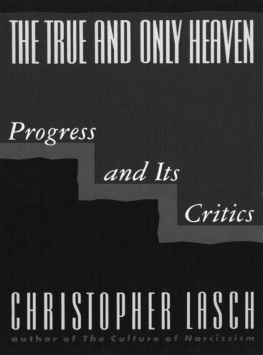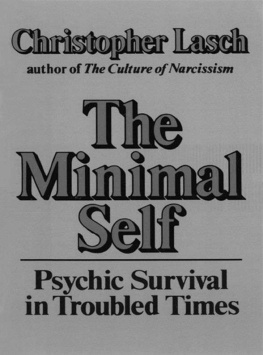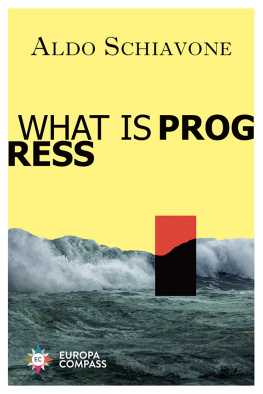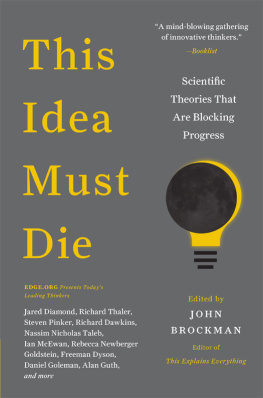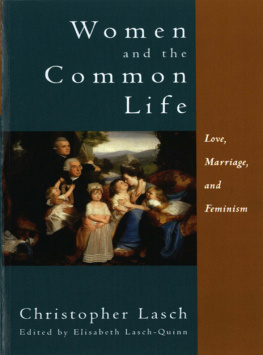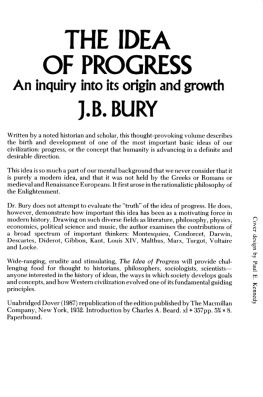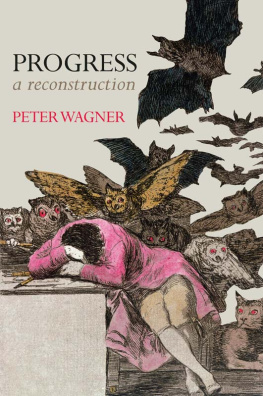OTHER BOOKS BY CHRISTOPHER LASCH
The American Liberals and the Russian Revolution (1962)
The New Radicalism in America (1965)
The Agony of the American Left (1969)
The World of Nations (1973)
Haven in a Heartless World: The Family Besieged (1977)
The Culture of Narcissism (1979)
The Minimal Self (1984)
For Robby and Greta Hope against Hope
MANY PASSENGERS STOP TO TAKE THEIR PLEASURE OR MAKE THEIR PROFIT IN [VANITY] FAIR, INSTEAD OF GOING ONWARD TO THE CELESTIAL CITY. INDEED, SUCH ARE THE CHARMS OF THE PLACE THAT PEOPLE OFTEN AFFIRM IT TO BE THE TRUE AND ONLY HEAVEN; STOUTLY CONTENDING THAT THERE IS NO OTHER, THAT THOSE WHO SEEK FURTHER ARE MERE DREAMERS, AND THAT, IF THE FABLED BRIGHTNESS OF THE CELESTIAL CITY LAY BUT A BARE MILE BEYOND THE GATES OF VANITY, THEY WOULD NOT BE FOOLS ENOUGH TO GO THITHER.
THE CHRISTIAN READER, IF HE HAVE HAD NO ACCOUNTS OF THE CITY LATER THAN BUNYANS TIME, WILL BE SURPRISED TO HEAR THAT ALMOST EVERY STREET HAS ITS CHURCH, AND THAT THE REVEREND CLERGY ARE NOWHERE HELD IN HIGHER RESPECT THAN AT VANITY FAIR. AND WELL DO THEY DESERVE SUCH HONORABLE ESTIMATION; FOR THE MAXIMS OF WISDOM AND VIRTUE, WHICH FALL FROM THEIR LIPS, COME FROM AS DEEP A SPIRITUAL SOURCE, AND TEND TO US AS LOFTY A RELIGIOUS AIM, AS THOSE OF THE SAGEST PHILOSOPHERS OF OLD.
Nathaniel Hawthorne, The Celestial Railroad
CONTENTS
This inquiry began with a deceptively simple question. How does it happen that serious people continue to believe in progress, in the face of massive evidence that might have been expected to refute the idea of progress once and for all? The attempt to explain this anomalythe persistence of a belief in progress in a century full of calamitiesled me back to the eighteenth century, when the founders of modern liberalism began to argue that human wants, being insatiable, required an indefinite expansion of the productive forces necessary to satisfy them. Insatiable desire, formerly condemned as a source of frustration, unhappiness, and spiritual instability, came to be seen as a powerful stimulus to economic development. Instead of disparaging the tendency to want more than we need, liberals like Adam Smith argued that needs varied from one society to another, that civilized men and women needed more than savages to make them comfortable, and that a continual redefinition of their standards of comfort and convenience led to improvements in production and a general increase of wealth. There was no foreseeable end to the transformation of luxuries into necessities. The more comforts people enjoyed, the more they would expect. The elasticity of demand appeared to give the Anglo-American idea of progress a solid foundation that could not be shaken by subsequent events, not even by the global wars that broke out in the twentieth century. Those wars, indeed, gave added energy to economic development.
The assumption that our standard of living (in the broadest meaning of that term) will undergo a steady improvement colors our view of the past as well as our view of the future. It gives rise to a nostalgic yearning for bygone simplicitythe other side of the ideology of progress. Nostalgia, not to be equated simply with the remembrance of things past, is better understood as an abdication of memory. It makes the past a foreign country, as David Lowenthal puts it. It obscures the connections between the past and the present. Deeply embedded both in popular culture and in academic sociology, the nostalgic attitude tends to replace historical analysis with abstract typologiestraditional and modern society, gemeinschaft and gesellschaftthat interfere with an imaginative reconstruction of our past or a sober assessment of our prospects. Now that we have begun to understand the environmental limits to economic growth, we need to subject the idea of progress to searching criticism; but a nostalgic view of the past does not provide the materials for that criticism. It gives us only a mirror image of progress, a one-dimensional view of history in which a wistful pessimism and a kind of fatalistic optimism are the only points of reference, a criticism of progress that depends on the contrast between complex modern societies and the close-knit communities allegedly typical of the world we have lost, as Peter Laslett calls it in his study of seventeenth-century England.
The idea of progress and the communitarian counterpoint that accompanies it encourage a type of speculation that seeks to balance the gains of progress against losses and remains understandably ambivalent about the whole business. What is needed is a point of view that cuts through this inconclusive debate, calls the dominant categories into question, and enables us to understand the difference between nostalgia and memory, optimism and hope. A growing dissatisfaction with the prevailing point of view has led historians and social critics to investigate the Atlantic tradition of republicanism or civic humanism, historically an important competitor of the liberal tradition. Scholars have shown that the political economy of liberalism came to prevail only against vigorous opposition, that its eventual triumph was far from a foregone conclusion, and that the republican tradition continued, well into the nineteenth century, to hold up an ideal of the good society radically different from the one held up by liberalism.
My discussion of nineteenth-century populism or proprietary democracybroadly understood as a body of social thought that condemned the boundless appetite for more and better goods and distrusted improvements if they only gave rise to a more and more elaborate division of laborbuilds on the work of J. G. A. Pocock, Gordon Wood, and other historians of the republican tradition. It is my contention, however, that the concept of virtue, which played such an important part in the nineteenth-century critique of improvement, did not derive from republican sources alone. Recent scholarship, much of it inspired by the hope of reviving a sense of civic obligation and of countering the acquisitive individualism fostered by liberalism, has overlooked the more vigorous concept of virtue that was articulated in certain varieties of radical Protestantism. For a Puritan like John Milton, virtue referred not to the disinterested service of the public good but to the courage, vitality, and life-giving force emanating, in the last analysis, from the creator of the universe. Milton associated virtue both with the blessings conferred on mankind by God and with the grateful recognition of life as a gift rather than a challenge to our power to shape it to our own purposes. Jonathan Edwards likewise understood that gratitude implied a recognition of mans dependence on a higher power. For Edwards, ingratitudethe refusal to acknowledge limits on human powers, the wish to achieve godlike knowledge and capacitiesbecame the antithesis of virtue and the essence of original sin.
In the nineteenth century, a time when the progress of human ingenuity seemed to promise a decisive victory over fate, Thomas Carlyle and Ralph Waldo Emerson, latter-day Calvinists without a Calvinist theology, reminded their readers that human beings did not control their own fate. They argued, in effect, that fate could be conquered only by wonder and virtueby grateful acceptance of a world that was not made solely for human enjoyment. Their insistence on human limitations, it seems to me, had a good deal in common with the populist critique of improvement, even though it was couched in a philosophical rather than a political idiom. Emersons principle of compensation can be understood as an exploration of the moral implications of unearned increment. Defiance of fate, as Emerson saw it, amounted to a form of tax evasion, an attempt to get something for nothingto escape the duty on desire. The political economists of progress hoped to unleash wealth-creating desire; Emerson and Carlyle reaffirmed the ancient folk wisdom according to which overweening desire invites retribution, the corrective, compensatory force of nemesis.
Next page
